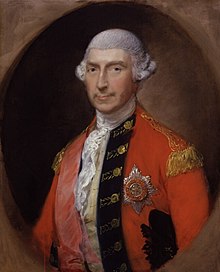User:Lord Cornwallis/Fall of Montreal

The Fall of Montreal (also known as the Capture of Montreal) took place in September 1760 when British occupied Montreal the largest remaining centre of French Canada effectively completing the Conquest of Canada.
Under the overall direction of Jeffrey Amherst British forces converged on the settlement from three seperate directions closing in on the outnumbered French garrison. The French military commander Francis de Gaston, Chevalier de Levis was resolved to make a last stand at Montreal despite the apparently overwhelming odds, however he was overuled by Pierre François de Rigaud, Marquis de Vaudreuil-Cavagnal the French civillian Governor who persuaded Levis to surrender. Levis tried to negotiate surrender with the Honours of War. The British refused to accept this, and the French were forced to make an unconditional surrender on 8 September. As they had at Quebec, the British offered generous terms in regard to the French Canadians which were later to become enshrined by law in the Proclamation of 1763 and the Quebec Act.
Background[edit]

Following the fall of Quebec in 1759 French forces had retreated westwards. In early 1760 they attempted to recapture Quebec by launching a surprise assault. Despite winning the Battle of Sainte-Foy in April 1760 they were unable to retake the city, and following the arrival of British reinforcements they withdrew to Montreal once more.
The British had originally hoped to capture both Quebec and Montreal in 1759, but a large force under Amherst had been able to force its way northwards and Montreal remained in French hands. For 1760 Amherst intended to marshal his numerous forces to seek a decisive victory at Montreal - where the French would not be able to retreat deeper into the North American continent where they maintained posts in the backcountry. Three British armies under the over-all command of Amherst set out from Albany, Oswego and Quebec, advanced towards Montreal along the St Lawrence River and Richelieu River, and converged on Montreal at the beginning of September.
Fall of Montreal[edit]

British approach[edit]
Surrender[edit]
Aftermath[edit]
The victory at Montreal was the culmination of the British offensive against Canada. Amherst had orders to consider a further assault on the French in Louisiana, but he decided against this and the operations around Montreal proved to be the last major fighting on the North American mainland. From 1761 the battleground switched to the Carribean. Thomas Gage was appointed the first British Governor of Montreal. Along with other British officials he retained much of the previous French system of government.
The loss of Montreal proved a devastating blow to France's hopes of regaining Canada at a future peace congress. The French government had believed that if it could keep a toe-hold in Canada, it would be able to negotiate the return of captured Canadian territory by exchanging it for territory occupied by French troops in Europe. After Montreal fell to the British, it became widely accepted by diplomats of both countries that New France would be ceded to the British. The 1763 Treaty of Paris recognized the transfer of sovereignty to Great Britain.
References[edit]
Bibliography[edit]
- Anderson, Fred. Crucible of War: The Seven Years War and the Fate of Empire in British North America, 1754-1766. Faber and Faber, 2000.
- Calloway, Colin G. The Scratch of a Pen: 1763 and the Transformation of North America. Oxford University Press, 2006.
- Dull, Jonathan R. The French Navy and the Seven Years' War. University of Nebraska, 2005.
- Long, J.C. Lord Jeffery Amherst: A Soldier of the King. New York: MacMillan, 1933.
- Mayo, Lawrence Shaw. Jeffrey Amherst: A Biography.
